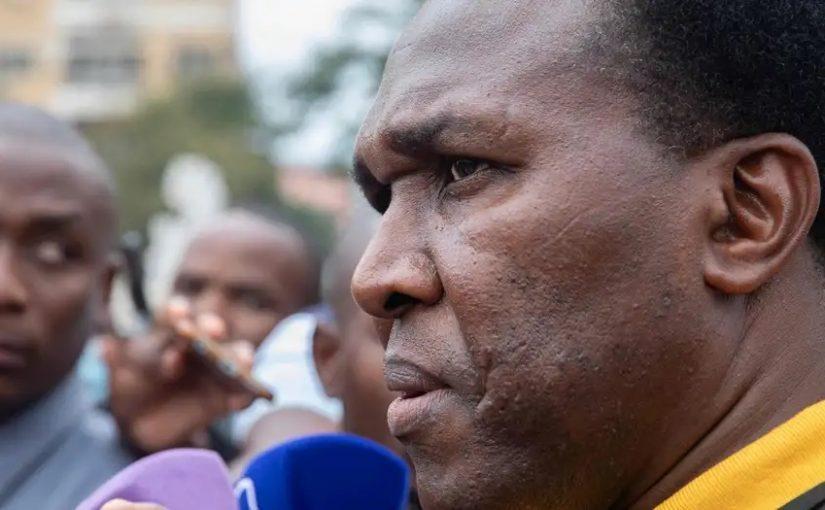Africa-Press – Mozambique. Politician Venâncio Mondlane has been charged by the Public Prosecutor’s Office with five crimes related to the post-election protests, including incitement to collective disobedience and instigation of terrorism, he said this Tuesday (July 22) as he left the Attorney General’s Office (PGR) in Maputo.
Mondlane was heard on Tuesday for the third time on matters relating to more than three dozen legal proceedings. The PGR headquarters was surrounded by heavy police security, with traffic restricted. After 30 minutes inside the PGR premises to be notified, Mondlane told reporters that he was calm and had the support of an international team of lawyers for the trial.
In statements to DW about this case, legal expert Vítor da Fonseca, counsellor for access to justice and human rights at the Mozambican Bar Association, explained that, of the five crimes Mondlane is accused of, the most serious are “incitement to terrorism and incitement to commit the crime of terrorism”, the latter of which, if convicted, can lead to 24 years in prison.
Vítor da Fonseca says he does not find in this case “the necessary prerequisites for the crime of incitement to terrorism.”
DW Africa: What could happen to Venâncio Mondlane from now on?
Vítor da Fonseca (VF): At this point, the most serious are the last two crimes Venâncio Mondlane is accused of – instigation of terrorism and incitement to commit terrorism. The latter carries a sentence of up to 16 years in prison. But the most serious is instigation of terrorism, which carries a sentence of 20 to 24 years in prison if convicted.
Article 61(2) of our Penal Code states that there is also an exceptional prison sentence. In other words, the maximum sentence in Mozambique ranges from 3 days to 24 years in prison, but in exceptional cases, the maximum sentence can reach 30 years. In other words, the law enforcement officer could consider political involvement and face up to 30 years in prison. By going up to 30 years in prison, we are politically killing Venâncio Mondlane.
DW Africa: What does Mozambican law characterize as terrorism or instigation of terrorism? Does it apply to the case of Venâncio Mondlane and his activities during and after the elections in Mozambique?
VF: We have the prerequisites for this instigation by Venâncio Mondlane and what he may have said regarding the 25 shots fired at Elvino Dias. Therefore, there is an issue here that he can raise during the contradictory [phase of the process], that it does not constitute terrorism.
In my opinion, I do not find the necessary prerequisites within the scope of this crime of instigation of terrorism, since it is a related action or the formation of a legal entity. Were the armoured vehicles seen vandalizing the warehouses ordered by Venâncio Mondlane? This is another discussion that could be brought up to understand whether we are dealing with the crime of incitement to terrorism.
Therefore, we are dealing with a claim toward an election which is understood to have not followed legal parameters. This is the view that, naturally, Venâncio Mondlane could bring. Within the crime of terrorism, all the necessary prerequisites must be met.
DW Africa: Considering the charges against him, if convicted, could he be arrested this year?
VF: If he is convicted, he will not be immediately taken to prison because he still has a 20-day right to appeal. If he appeals, the sentence will be suspended. If the Superior Court of Appeals finds that he should be convicted, Venâncio Mondlane has a final recourse, which is the Supreme Court.
DW Africa: What outcome do you foresee following these accusations?
VF: Naturally, if he is convicted, Venâncio Mondlane’s political standing, his moral standing, his strength, will be extinguished. Others may emerge with the same vision, but the underlying issue, his strength, will have been demoralized.
For More News And Analysis About Mozambique Follow Africa-Press






